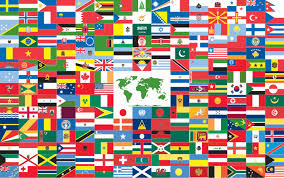International Community opposes the parliamentary motion to impeach Somalia’s President

The political crises created by the impeachment motion against Somali president Hassan Sheikh Mohamud has attracted the eyes of international community which showed concern over the situation.
The Envoys of the United Nation, the African Union mission in Somalia (AMISOM) the Inter-governmental Authority on Developmental (IGAD), the European Union (EU), the United States of America and the United Kingdom have jointly pointed out that the parliamentary motion to impeach President Hassan Sheikh Mohamud would impede progress on Somalia’s peace and state building goals.
“While we fully respect the right of the Federal Parliament to hold institutions to account and to fulfil its constitutional duties, the submission of any such motion requires a high standard of transparency and integrity in the process and will consume extremely valuable time, not least in the absence of essential legal bodies.
The international community underscored the need to recall that Somalia and all member states are bound to by United Nation Security Council Resolution (UNSCR) 2232 which sets out the expectations of the international community on the security and political progress needed in Somalia, and the need for an electoral process in 2016 without extension of either the legislative or executive branch.
While recognising the progress that has been made in Somalia in recent years, especially on federalism, and also recognising the important and courageous contribution made by the Federal Parliament, often at great human cost, we remain concerned about progress on the legislative agenda and the need to pass key legislation including laws on elections, citizenship, political parties’ and the constitutional court. Emerging institutions are still fragile. They require a period of stability and continuity to allow Somalia to benefit from the New Deal Somali Compact and to prepare for a peaceful and legitimate transfer of public office in 2016.”
In 2014 international partners advocated consistently for political stability and continuity, respect for institutional roles defined within the constitution and strong measures to tackle corruption and improve public financial management, including in the security and defence sector. In 2015 this remains our firm call.
We are determined to assist the Somali people in preparing for an electoral process in 2016 that will not be dominated by any single institution or stakeholder. The exact choice of electoral process, will be made by Somalis following a national consultative process, in which the executive, legislative, regional administrations as well as civil society across the country will participate. We note that both the Executive and Members of Parliament have endorsed the proposed Action Plan for the national consultative process.
We believe the Somali people should be given the opportunity to hold their elected representatives and government to account in 2016 through an inclusive and transparent electoral process.
We call on the Somali federal institutions to maintain their unity and cohesion during this challenging period and focus on priorities Somalis have set for themselves: (a) the preparation of the electoral process in 2016; (b) the formation of federal member states and the constitutional review process, which are vital for stabilisation, governance and state-building; and (c) the fight against Al-Shabab, which is at a crucial juncture, thanks to the support and sacrifice of Somali national security forces, the African Union and partners.”